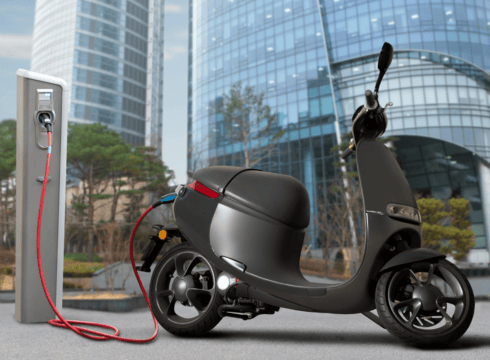The CAG is examining if OEMs claimed subsidies under FAME-II scheme without meeting minimum localisation mandates
The audit will reportedly be based on the formula for domestic value addition as defined by the Ministry of Heavy Industries
Apart from a probe, the Centre has also suspended disbursal of INR 1,300-1,400 Cr worth of incentives to two-wheeler OEMs
Inc42 Daily Brief
Stay Ahead With Daily News & Analysis on India’s Tech & Startup Economy
The Centre has intensified its probe into the misappropriation of subsidies by electric vehicle (EV) manufacturers, and the Comptroller and Auditor General (CAG) is now reportedly auditing the books of the two-wheeler original equipment manufacturers (OEMs).
The CAG is examining the claims of OEMs to establish whether these players claimed subsidies under the second phase of the Faster Adoption and Manufacturing of Electric Vehicles in India (FAME-II) scheme without meeting minimum localisation mandates.
“The intent of the audit is to ascertain if the claims made were genuine… The automotive supply chain is complex. The CAG is auditing accounts submitted to establish whether the companies who had applied for the incentives under FAME-II were violating specified localisation norms,” a source told The Economic Times.
As per government officials, the audit will reportedly be based on the formula for domestic value addition as defined by the Ministry of Heavy Industries (MHI). Another industry executive added that the government opined that the entire value chain had to be evaluated to determine the localisation of components.
Violation Of Localisation Norms
At the heart of the matter is the FAME scheme, which was first announced in 2015, to spur the adoption of EVs in the country. With the MHI as the nodal body, the first phase of the scheme ran for four years until 2019.
The second phase was launched with a budget outlay of INR 10,000 Cr and this is where the problems began. After reports emerged that many OEMs allegedly claimed subsidies without adhering to localisation norms, the Centre launched an investigation into the matter and suspended disbursal of INR 1,300-1,400 Cr worth of incentives to two-wheeler OEMs under the scheme.
While players such as Hero Electric, Okinawa Autotech, Ampere Vehicles, and Revolt have directly come under the scanner for misappropriation allegation, other players such as Ola Electric, Ather Energy and TVS Motor have also been the subject of a probe over allegations that these players artificially priced their products lower to claim subsidies.
The government also tasked the public sector NBFC IFCI and consultancy firm EY to suggest steps to streamline the scheme.
The Centre also summoned executives of top two-wheeler EV OEMs in connection with the probe involving recent whistleblower allegations over mispricing of EVs under the FAME-II scheme.
The latest development comes weeks after it was reported that the Centre was looking at scrapping the FAME-II scheme altogether post the expiration of its deadline in FY24. The government is also said to have opined that it would rather route the subsidies through production linked incentive (PLI) scheme for automobiles and auto components. It was also reported that the government was considering making norms easier for automakers, including EV OEMs to avail benefits under the PLI scheme.
The government recently informed the Parliament that more than 21.7 Lakh registered EVs plied on the Indian roads, led by Uttar Pradesh, which accounted for 4.65 Lakh EV registrations. It was followed by Maharashtra with 2.26 Lakh EVs.
{{#name}}{{name}}{{/name}}{{^name}}-{{/name}}
{{#description}}{{description}}...{{/description}}{{^description}}-{{/description}}
Note: We at Inc42 take our ethics very seriously. More information about it can be found here.


